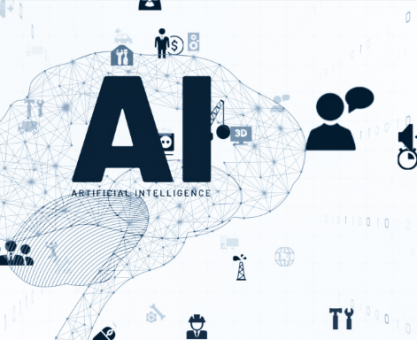Executive Summary
-
Explore how AI is transforming diagnostics and patient care across the healthcare industry.
-
Understand the benefits and challenges of implementing AI in medical settings.
-
Learn from real-world examples of AI success stories in healthcare.
-
Discover expert tips on leveraging AI for improved healthcare outcomes.
Introduction
Imagine a world where diseases are detected within seconds, personalized treatment plans are instantly devised, and patient outcomes are consistently improved. This isn’t a distant future; it’s happening now, thanks to AI-driven diagnostics and patient care. For investors, healthcare providers, and technology enthusiasts, understanding the impact and potential of AI in the healthcare sector is crucial. This article will delve into how AI is revolutionizing healthcare, showcasing success stories that highlight its transformative power.
Definitions / Context
Artificial Intelligence (AI) in healthcare refers to using machine learning algorithms and software to analyze complex medical data. AI can enhance diagnostics, improve patient care, and streamline administrative processes, ultimately leading to better health outcomes and cost efficiencies.
Benefits / Pros
-
Improved Diagnostic Accuracy: AI algorithms can analyze medical images, such as MRIs and X-rays, with greater precision than human radiologists.
-
Personalized Treatment Plans: AI systems can tailor treatment plans based on individual patient data, improving treatment efficacy.
-
Operational Efficiency: Automation of administrative tasks, such as scheduling, results in reduced workload and increased efficiency for healthcare providers.
Risks / Cons / Challenges
-
Data Privacy Concerns: Handling sensitive patient data requires robust security measures to prevent breaches.
-
Implementation Costs: The initial setup and integration of AI systems into existing infrastructure can be expensive.
-
Regulatory Compliance: Navigating the complex regulatory landscape for AI in healthcare poses challenges for providers.
How to Implement AI in Healthcare
-
Identify Needs: Determine specific areas where AI can add value, such as diagnostic imaging or patient data analysis.
-
Select Technology: Choose AI tools and platforms that align with organizational goals and capabilities.
-
Pilot Testing: Conduct pilot programs to assess the effectiveness and potential challenges of AI implementation.
-
Training and Integration: Train staff and integrate AI systems into daily operations to ensure smooth transition.
-
Monitor and Evaluate: Continuously monitor AI performance and make adjustments as needed.
A leading hospital in the United States integrated an AI-based platform to enhance its oncology department. The AI system analyzed patient data and medical literature to suggest personalized treatment options. As a result, the hospital saw a 20% increase in treatment success rates and reduced patient readmission rates by 15%.
Case Study: AI in Oncology
Expert Tips / Strategic Insights
-
Start Small: Implement AI in a small department or specific process before scaling up.
-
Collaborate with AI Experts: Partnering with AI specialists can streamline implementation and provide valuable insights.
-
Stay Updated on Regulations: Regularly review and comply with regulations to mitigate legal risks.
Tools / Resources / Calculators
-
AI in Healthcare Toolkit: A comprehensive guide to implementing AI in medical settings.
-
Data Security Checklist: Ensure compliance with data protection standards.
-
ROI Calculator for AI Investments: Estimate the return on investment for AI healthcare solutions.
Conclusion
AI-driven diagnostics and patient care are not just buzzwords but critical components of the future of healthcare. By leveraging AI, healthcare providers can deliver more accurate diagnoses, personalized care, and improved patient outcomes. As the sector continues to evolve, staying informed and proactive in AI adoption is key to reaping its full benefits. For personalized guidance on integrating AI into your healthcare practice, consider speaking with our advisors.























